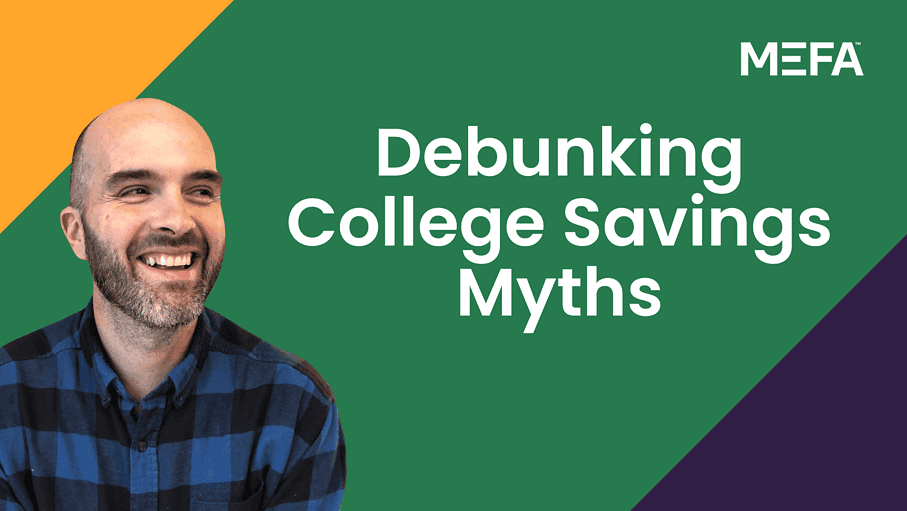Have you ever wondered if saving for college will prevent you from receiving financial aid? Or if it’s too late to save for college? Get the facts in our short video where we debunk three common myths about saving for college.
Please note that this transcript was auto-generated. We apologize for any minor errors in spelling or grammar.
[00:00:00] Hi everyone. Jonathan here from MEFA, and today I’m going to debunk three common myths about saving for college. Myth number one, if you didn’t start saving when your child was first born, it’s too late. I. The truth is it’s never too late. You can still take advantage of tax benefits and some asset growth if you start saving when your child is older.
After all, anything that you can save now is money. You won’t have to borrow and repay later with interest. Myth two, if you save too much, you won’t get any financial aid. This is false. The biggest factor in calculating your eligibility for financial aid is your annual income, not parent assets such as savings.
In fact, no more than 5.6% of parent assets are included in the financial aid formula. So even if you saved a hundred thousand dollars in a college savings account, the college would only assume you could spend 5,600 of that when they calculate your [00:01:00] financial aid eligibility. Myth three, college savings plans are too restrictive in how they can be spent.
This is false. Actually, the opposite is true. 5 29 plans are flexible and savings can be used for a wide range of qualified expenses like tuition, food, housing, books, and supplies at any accredited college in the us. And they can also be used for textbooks fees and equipment for apprenticeship programs to pay for up to $10,000 a year of K through 12 tuition expenses and to repay up to $10,000 total.
And student loans. So as you can see, there are many reasons why you should be saving for college. To learn more or to get started, visit MEFA.org/save.













